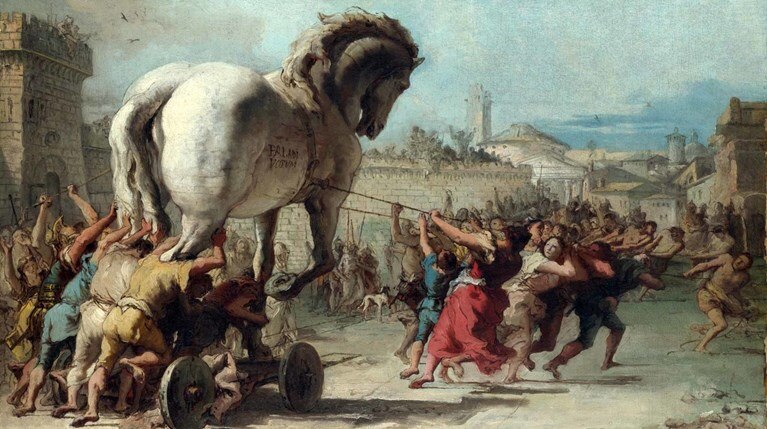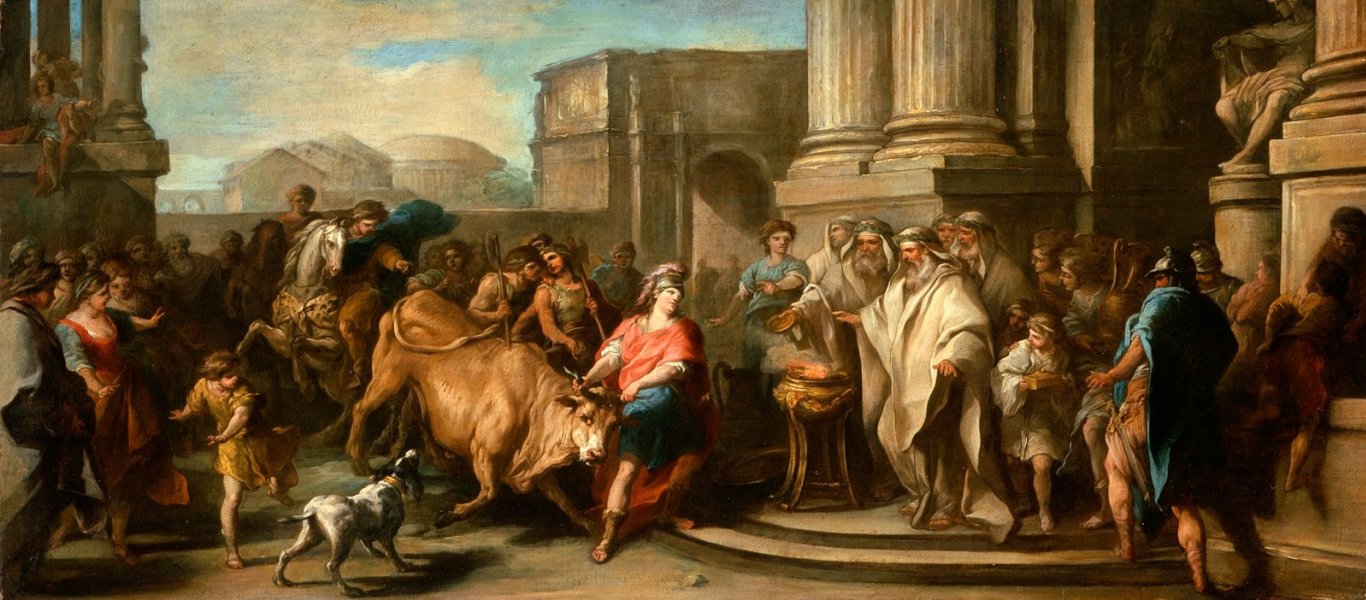Myths vs Reality

Some ancient authors claim that behind the mythical Theogony, historical truths are hidden, which over the centuries, became legends, which the people made into myths.
According to this theory, a king of the Scythians Akmon lived in ancient times who conquered Phoenicia. When he died, he was deified by his people and was called the Great One. The son of Akmon was Uranus, who after the death of his father, took over the kingdom and continued his conquest campaigns: he conquered all of Greece and the Mediterranean sea and set up his throne in Crete. From there, always pursuing his campaigns, he advanced throughout Western Europe as far as Iberia, which is today's Spain, and conquered it.
Who were Uranus and Cronos really?
But he was so cruel and despotic that his own sons rebelled. Their mother, Titaea, who favored her son Cronos, because he was the bravest one, helped him with huge amounts of wealth in order to take over the kingdom, by dethroning his father. Oceanus at that time ruled Libya and did not take part in the defection.
When Cronos became king, he agreed with his elder brother, the Titan, not to raise male children, so that the kingship, after his death, would go to Titan's sons. So the children he had were locked in a dark prison from a young age.
But his wife, Rhea, couldn't bear this and instead of handing her last child, Zeus, over to his father, she hid him in a cave in Crete. However Titan found out and became furious, because after the death of Cronos, Zeus would become king and not his own sons, as was agreed. So his other brothers and he went Crete, captured Zeus and Rhea and imprisoned them.
However, when Zeus grew to manhood, he managed to defeat his uncles, the Titans, who had, in the meantime, dethroned his father and thus Cronos became king again. Cronos, though, was a suspicious man. Seeing that Zeus had acquired great power, because he had made many allies, he feared that, one day, he would dethrone him and take the kingdom from him. So he tried in every way to neutralize him.
Zeus forsaw this and openly declared war on his father, who, leaving Crete, took refuge with the king of Italy Janos.
In those ancient times, the Italians still lived like savages, hunting in the dense forests and wearing the hides of wild animals. Kronos taught them how to cultivate the land and since then Italy began to thrive. But because Italy was close to Crete and he was afraid that his son would sometime attack him, he left and went to Iberia and from there he started gathering forces, in order to strike Zeus and take back his throne.
But Zeus found out and commissioned Poseidon, who was the commander-in-chief of his fleet, to attack the ports of Iberia with his ships and destroy all the vessels of Kronos. Kronos, after losing his naval power, fled to Sicily. But Zeus and his allies pursued him until they killed him.

Zeus then became ruler of the whole world, leaving his brother Pluto in charge of Iberia and Celtgaul, and held the capital of his empire in Crete. But he also built a strong castle on Olympus in Thessaly, where his loyal troops guarded the narrow passages, so that hostile tribes would not descend on Greece.
When Zeus became cosmocrator, he began to live a life full of amusements and pleasures, and the distant memory of those exploits, over the centuries, became a series of legends. When he died, the Kouretes buried him in a cave in Crete and his tomb was shown to foreigners many centuries later by the local residents.
It seems there was a custom, in those ancient years, for kings to take the name of their predecessor, as happened later in Minoan Crete. So there was not just one Zeus, but many and the deeds of all of them remained as legends in the memory of men. These legends, much later, at the dawn of the historical era, were recreated by the the poets and all af them all were attributed to one Zeus, who they called "king of gods and men".
Over the centuries, these legends took a definitive form and became a common belief. This is how Mythology was created and this is how the various gods - big and small - were created.
For the gods of that ancient age were innumerable. From this crowd, however, in time, twelve stood out, who made up the "Twelve Gods", as they were called. They were the "gods of Olympus", because the people of those times believed that the residence of the great gods was on Olympus, where they had their palaces, on its mountain peaks, lost in the eternal clouds, and from where they often descended, to take part in the lives of men, in their works of peace or in their wars.